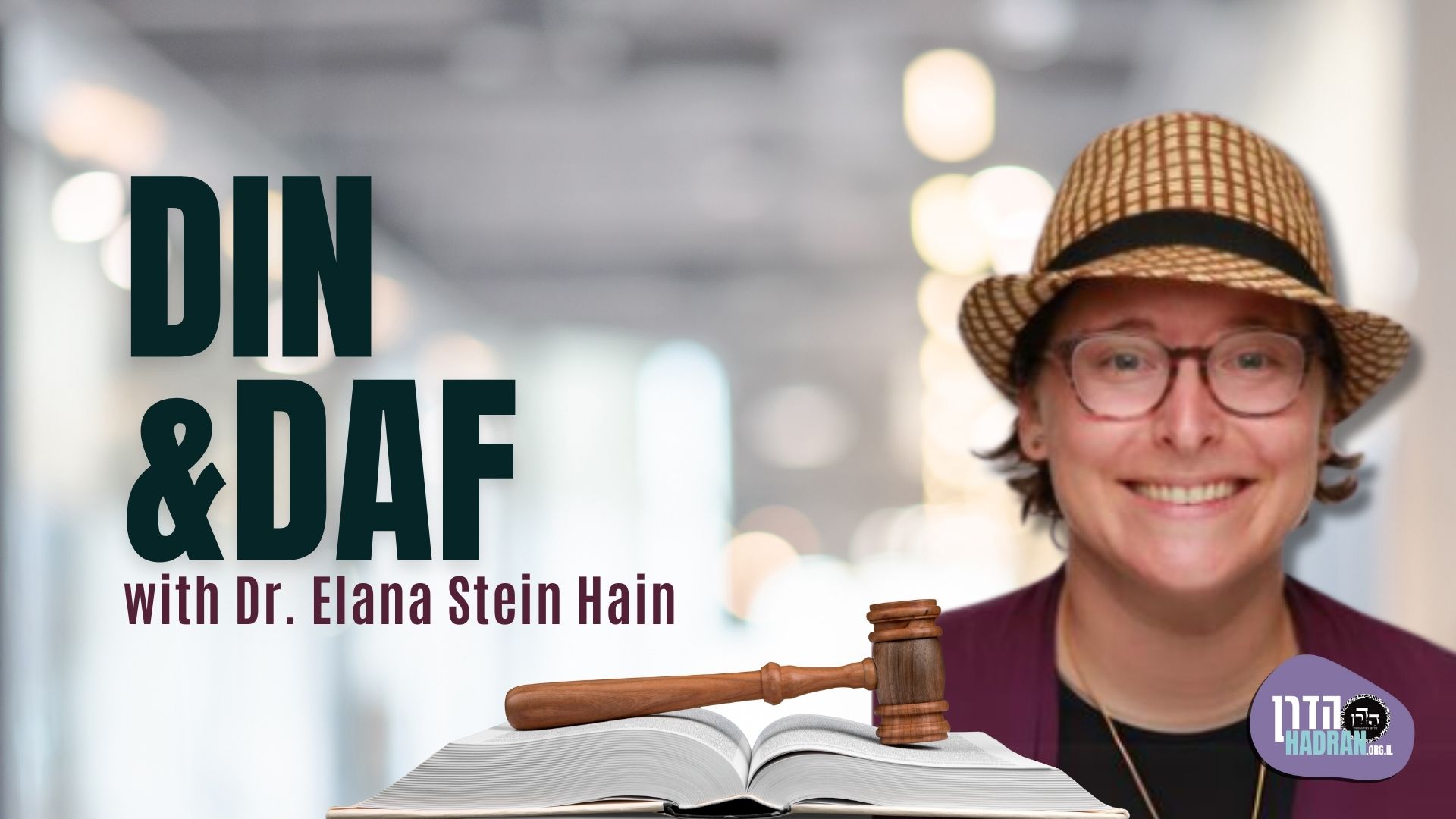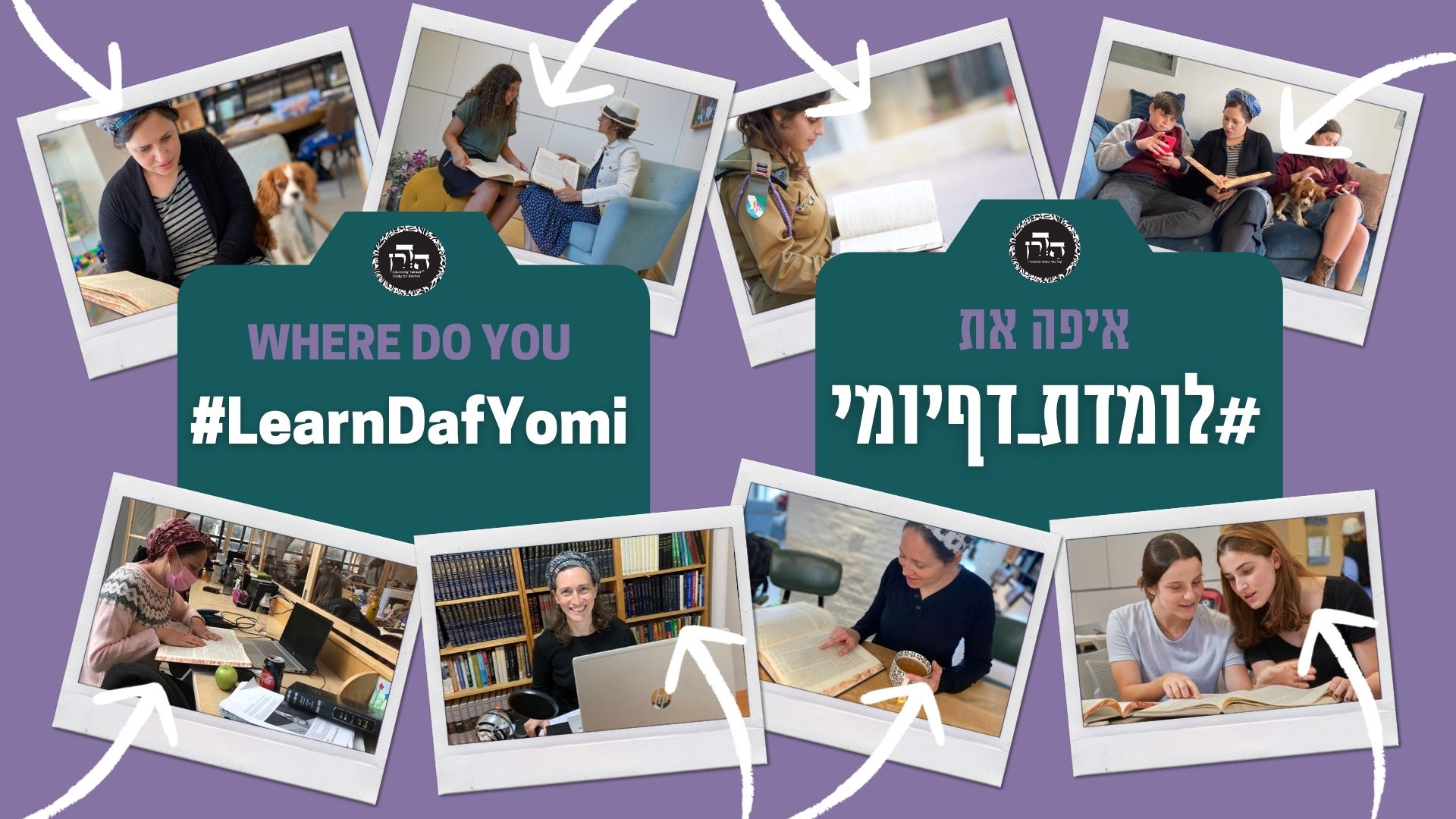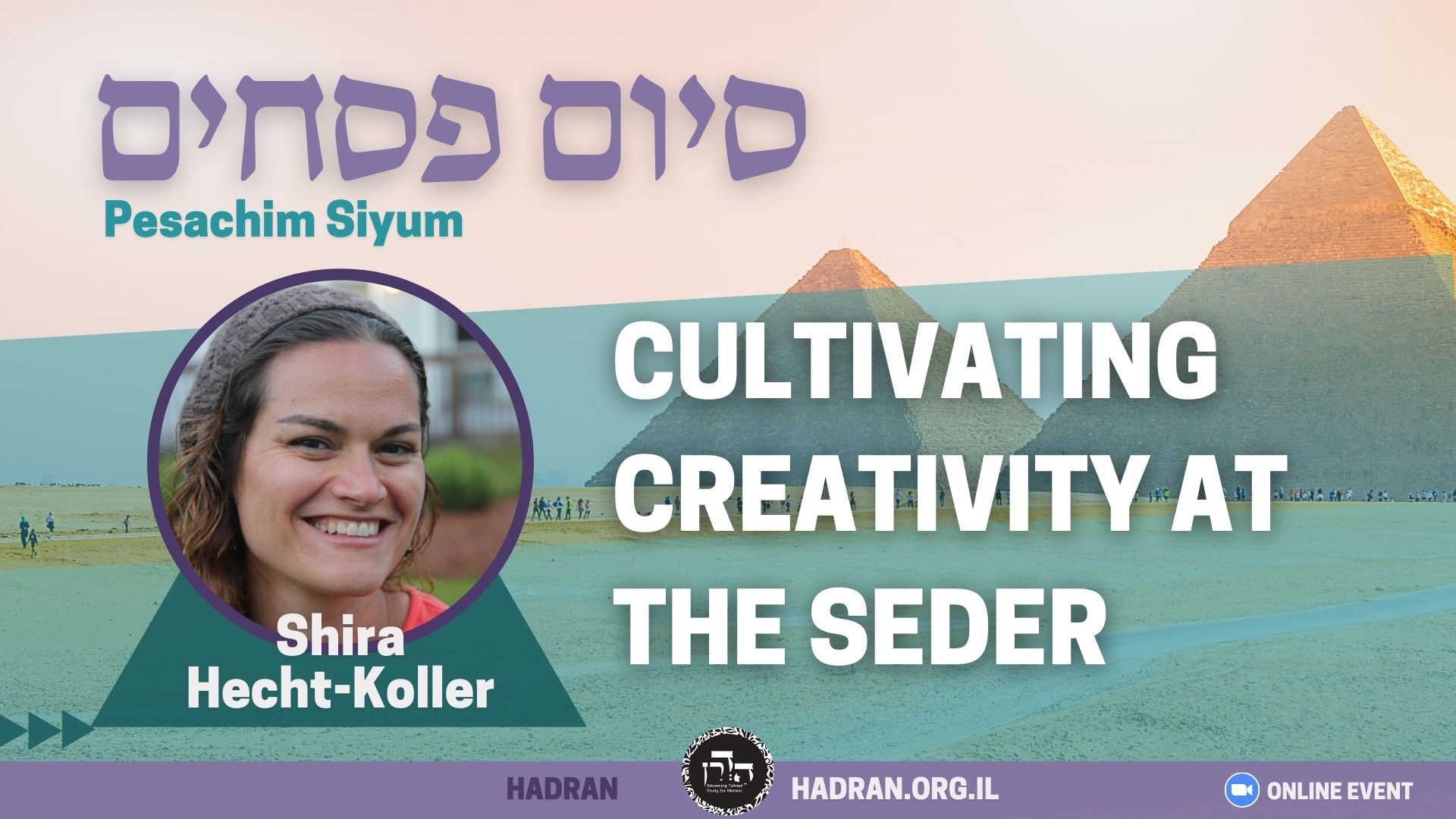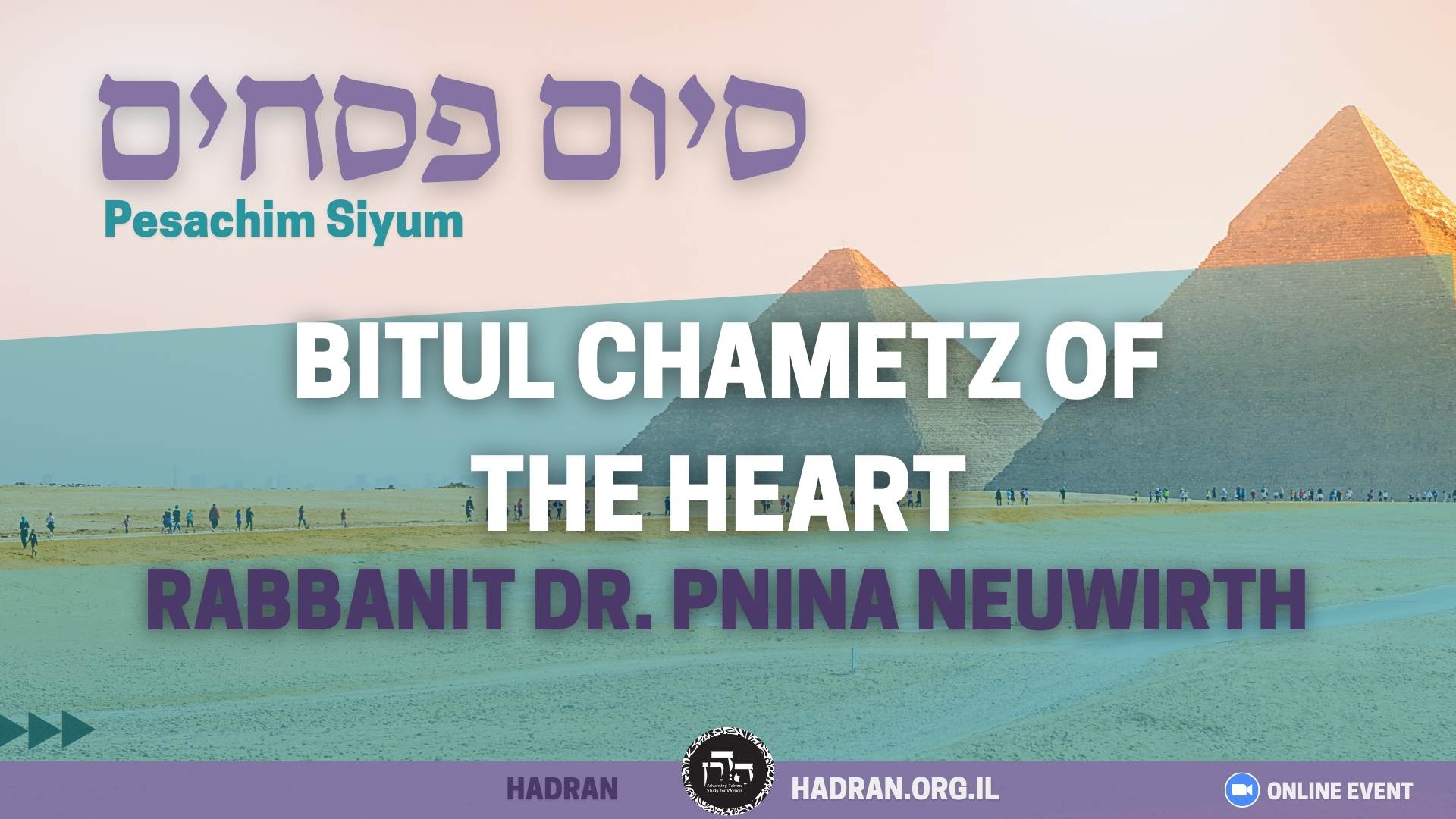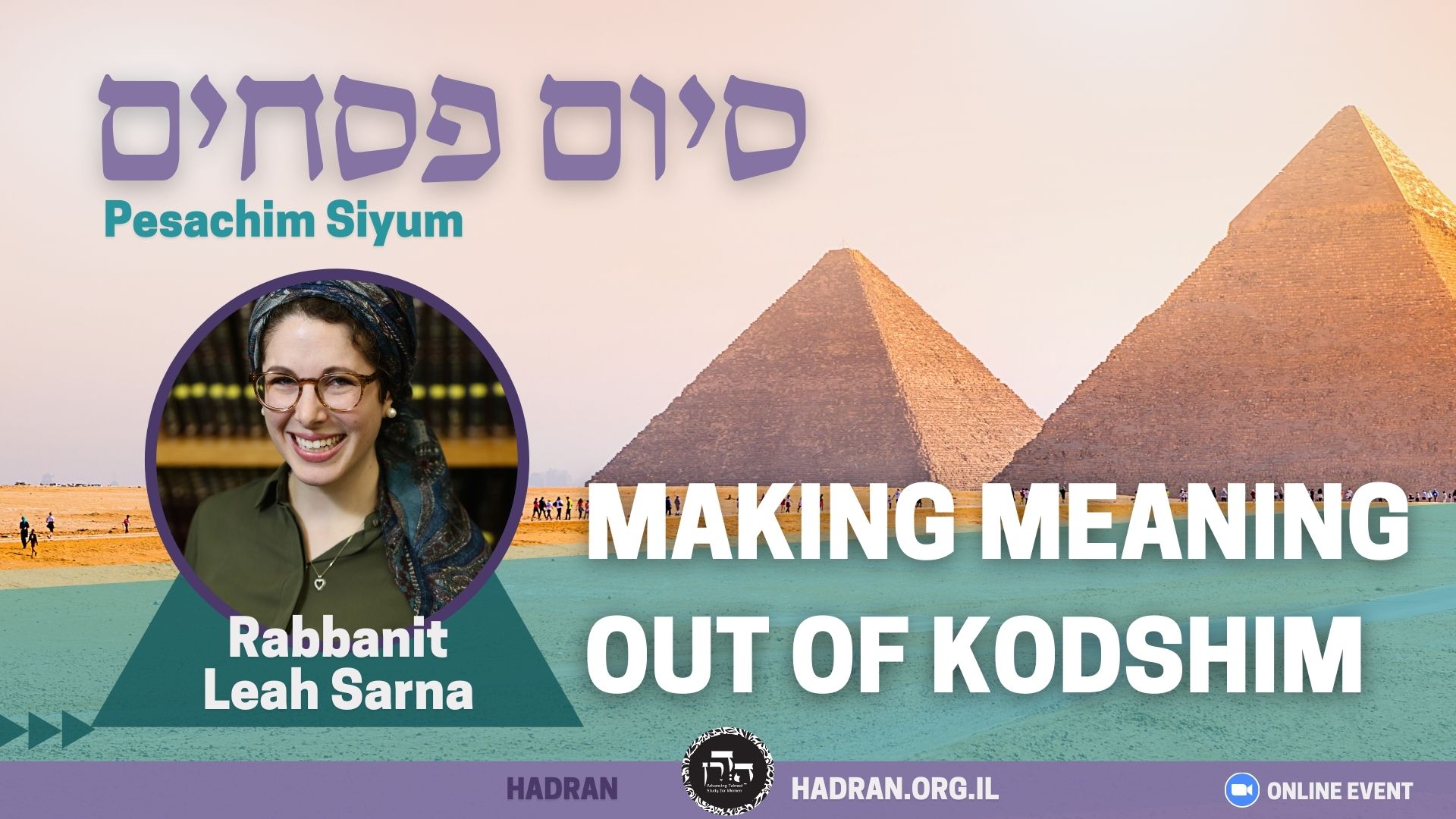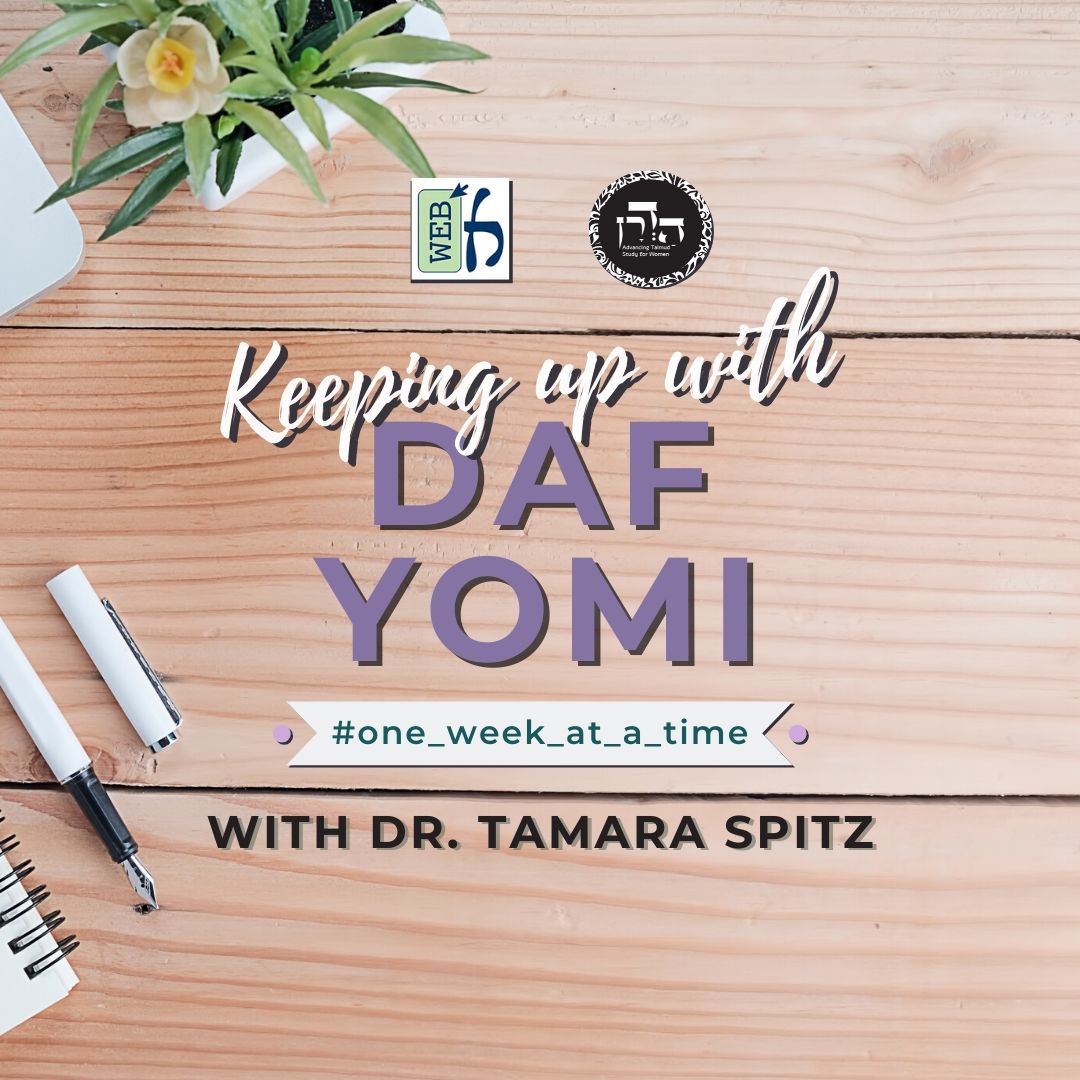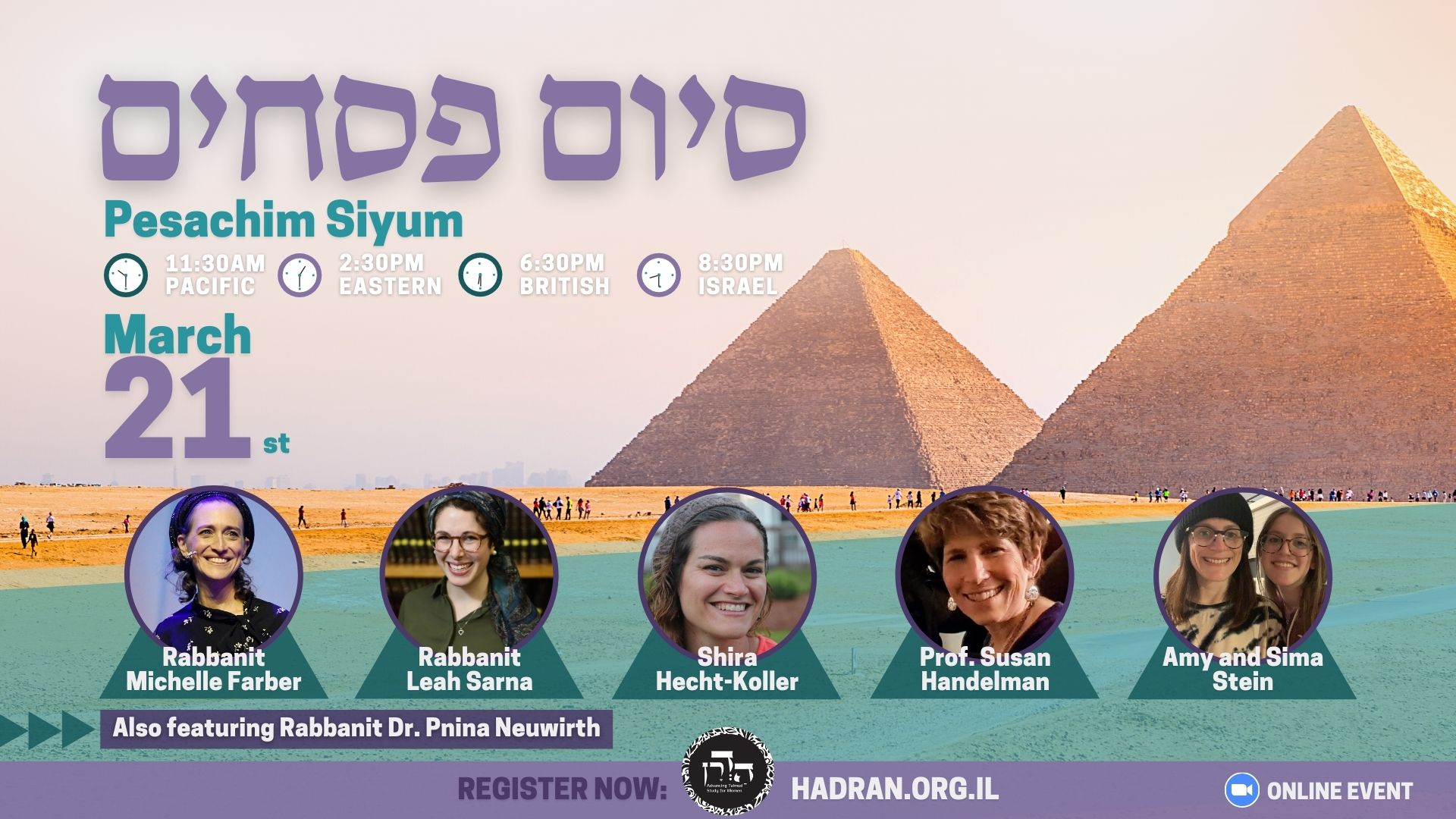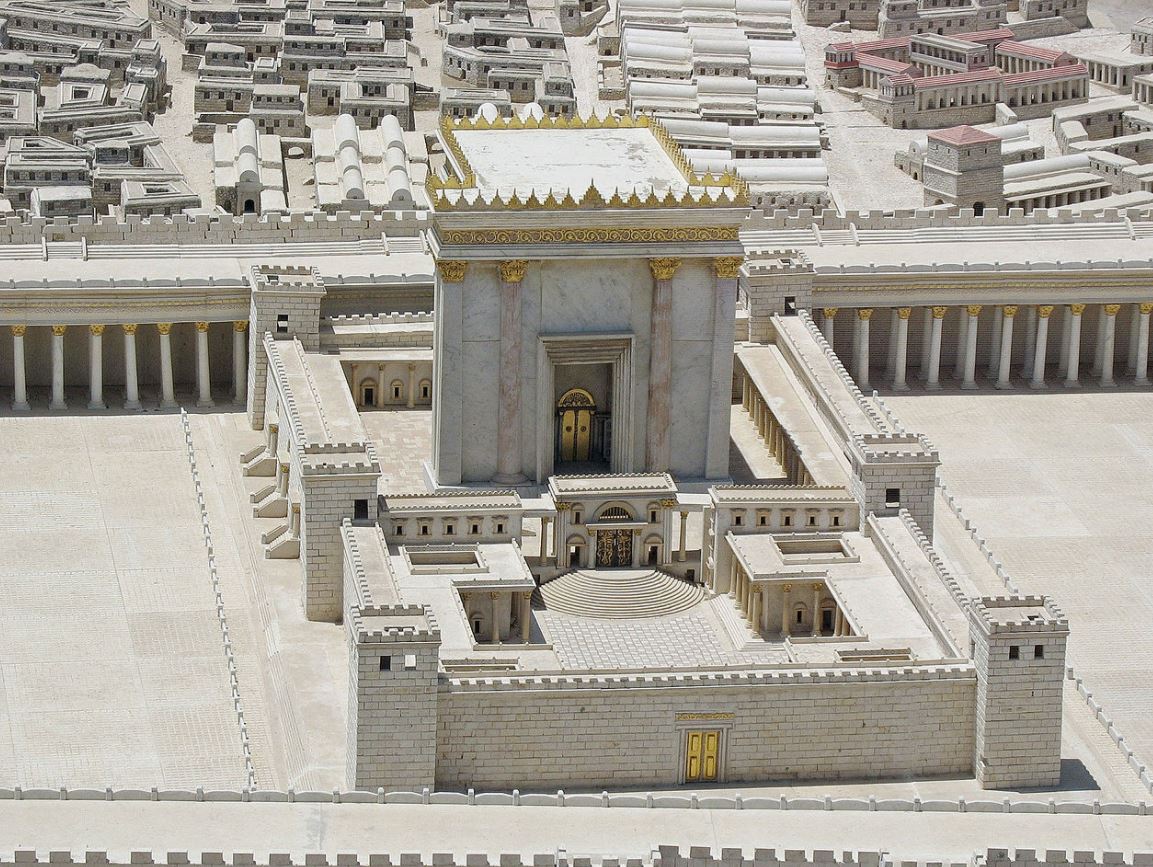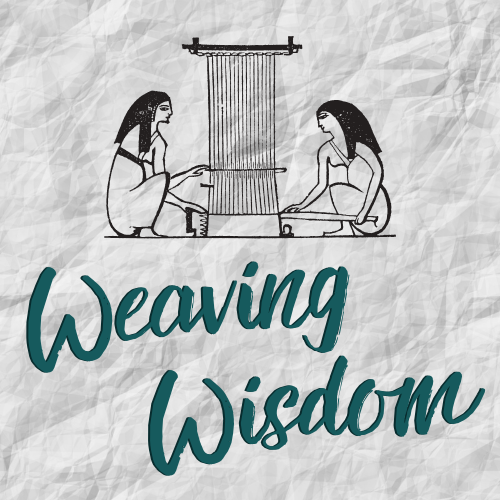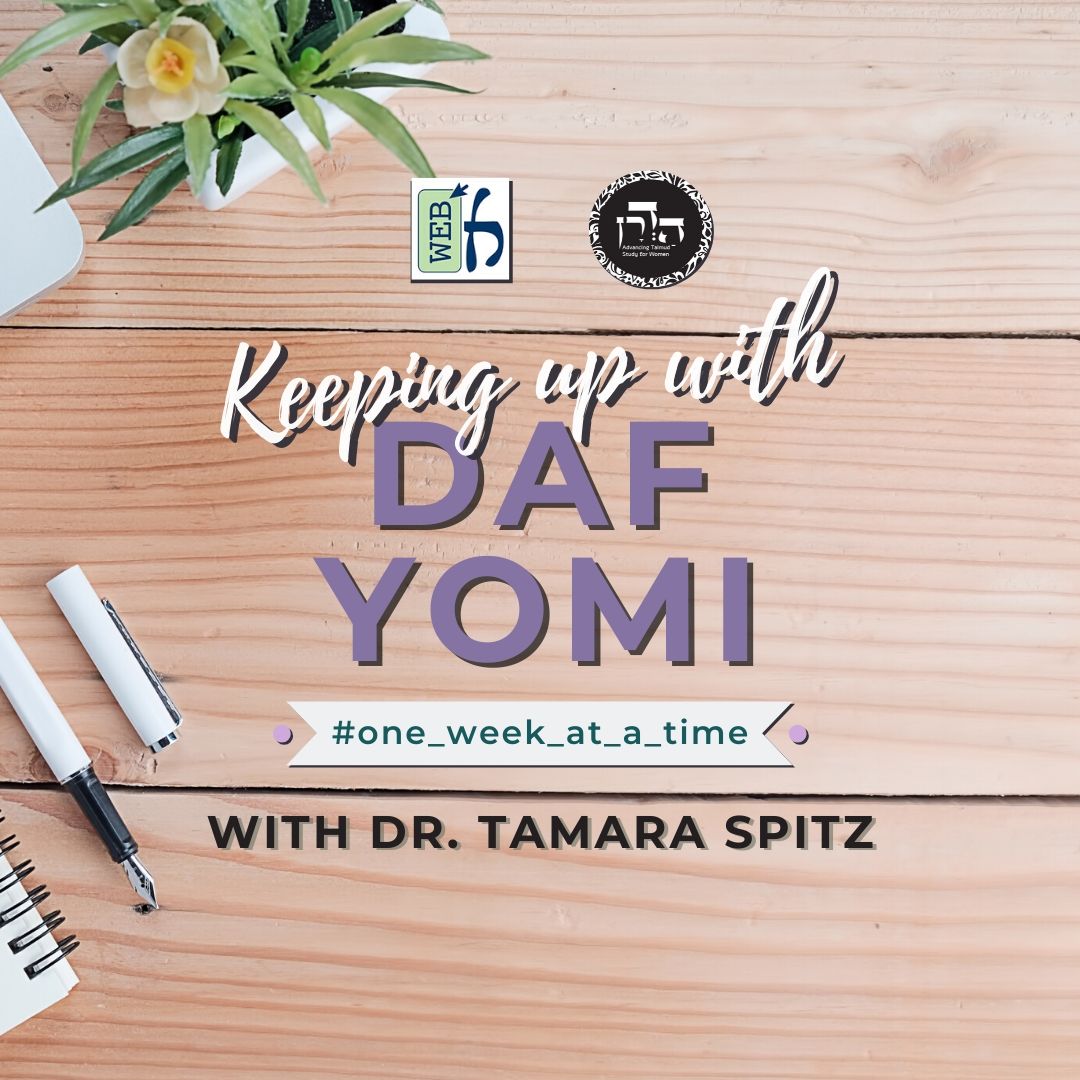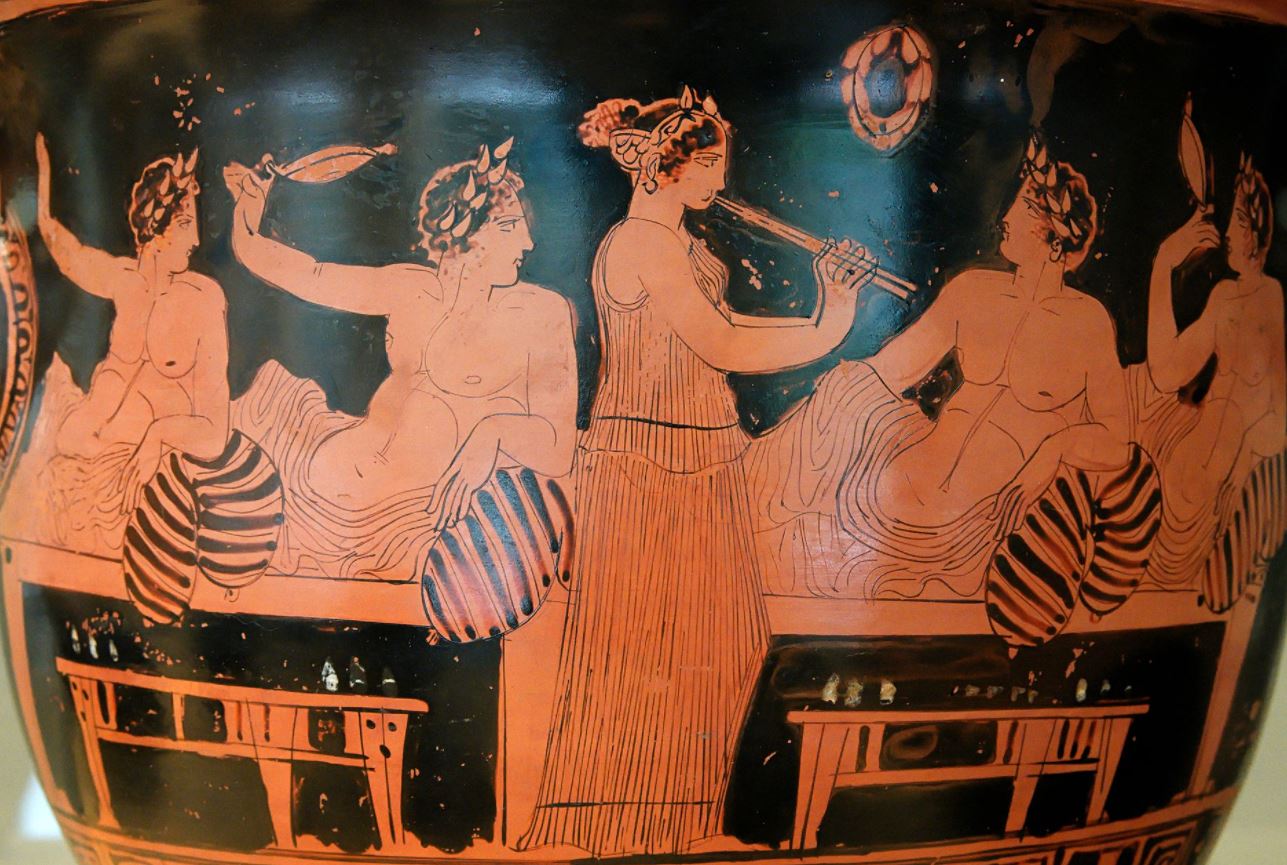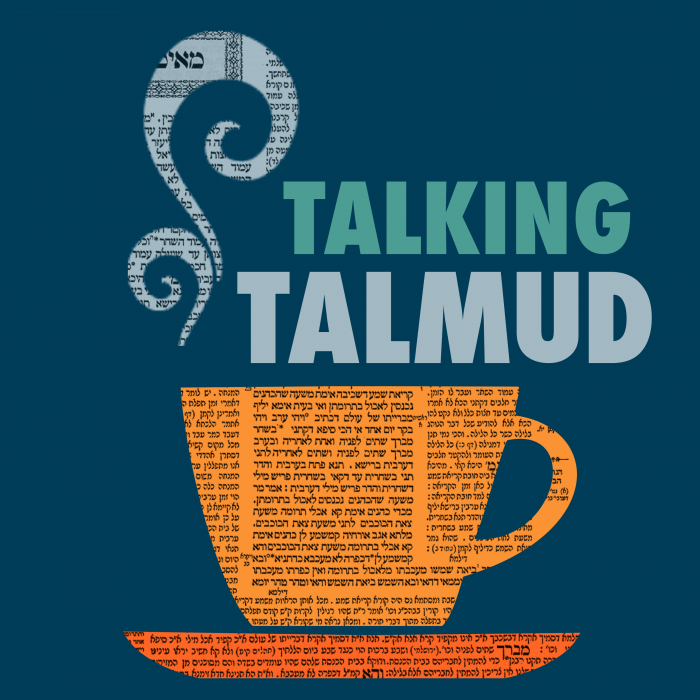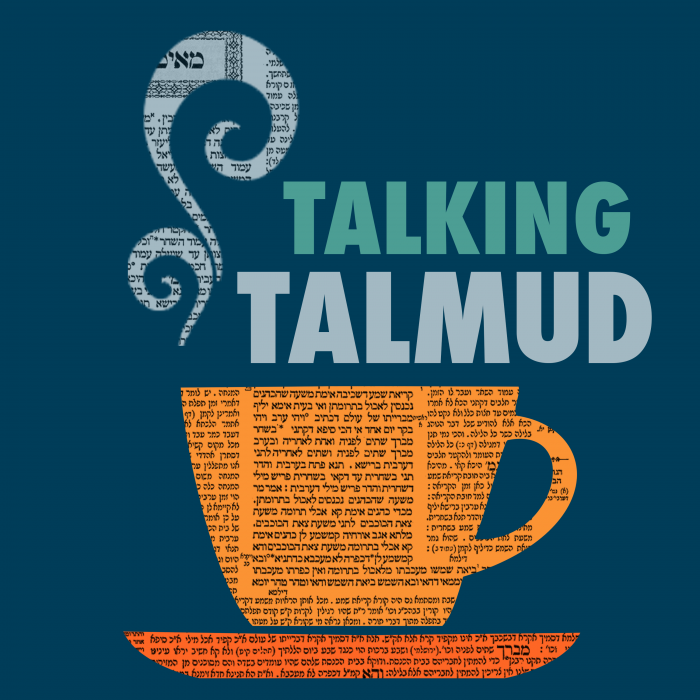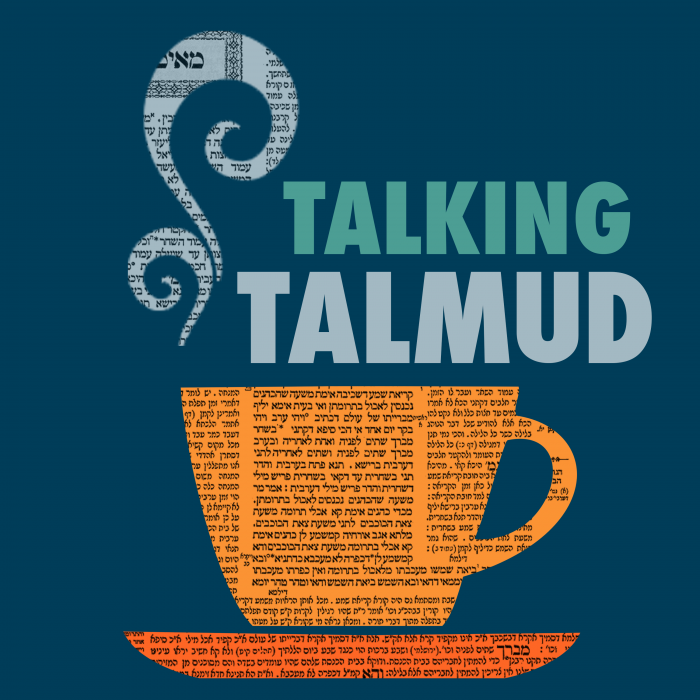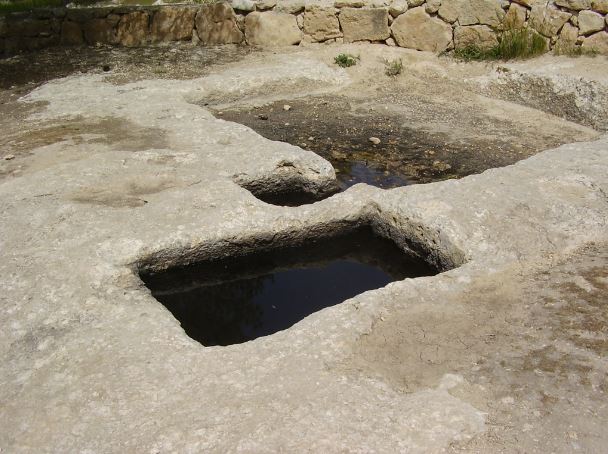Pesachim 87
מַתְנִי׳ הָאִשָּׁה בִּזְמַן שֶׁהִיא בְּבֵית בַּעְלָהּ, שָׁחַט עָלֶיהָ בַּעְלָהּ וְשָׁחַט עָלֶיהָ אָבִיהָ — תֹּאכַל מִשֶּׁל בַּעְלָהּ. הָלְכָה רֶגֶל רִאשׁוֹן לַעֲשׂוֹת בְּבֵית אָבִיהָ, שָׁחַט עָלֶיהָ אָבִיהָ וְשָׁחַט עָלֶיהָ בַּעְלָהּ — תֹּאכַל בִּמְקוֹם שֶׁהִיא רוֹצָה.
MISHNA: A woman, when she is living in her husband’s house, if her husband slaughtered the Paschal lamb on her behalf and her father also slaughtered the Paschal lamb on her behalf, she should eat from her husband’s lamb because it is assumed that the wife intended to be included in her husband’s group. However, if, as was often customary, she went on the first Festival following her marriage to observe the Festival in her father’s house, then, if both her husband slaughtered the Paschal lamb on her behalf and her father also slaughtered the Paschal lamb on her behalf, she may eat in whichever place she wishes, since it is not obvious with whose group she intended to be included.
יָתוֹם שֶׁשָּׁחֲטוּ עָלָיו אַפּוֹטְרוֹפְּסִין — יֹאכַל בִּמְקוֹם שֶׁהוּא רוֹצֶה. עֶבֶד שֶׁל שְׁנֵי שׁוּתָּפִין לֹא יֹאכַל מִשֶּׁל שְׁנֵיהֶן. מִי שֶׁחֶצְיוֹ עֶבֶד וְחֶצְיוֹ בֶּן חוֹרִין לֹא יֹאכַל מִשֶּׁל רַבּוֹ.
In the case of an orphan with multiple guardians, if each of his guardians [apotropsin] slaughtered a Paschal lamb on his behalf, intending that he be included in their group, he may eat in whichever place he wishes. A slave jointly owned by two partners may not eat from the lamb of either of them, unless it was stipulated beforehand from whose lamb he will partake. One who is half slave and half free man may not eat from his master’s lamb. It is assumed that the master did not intend to allow this person’s free half to partake of the lamb, and therefore the master did not slaughter the lamb with him in mind. Consequently, the half slave is not included among those registered for his master’s offering unless he was explicitly included.
גְּמָ׳ שָׁמְעַתְּ מִינַּהּ יֵשׁ בְּרֵירָה? מַאי רוֹצָה — בִּשְׁעַת שְׁחִיטָה.
GEMARA: The mishna states that in certain cases one partakes of the lamb of whichever group he desires. One’s inclusion in a group requires that he be registered with that group from the outset, before the lamb is slaughtered. The Gemara suggests: You learn from it that there is retroactive clarification. One’s ultimate decision as to which group he wishes to be part of retroactively indicates that, from the outset, he was registered in that group. This is problematic, as no halakhic conclusion has been reached in the matter of retroactive clarification. The Gemara therefore rejects this suggestion: What is the meaning of the phrase: She may eat in whichever place she wishes? It is referring to a case where a woman has already expressed her choice before the time of slaughter. Therefore, this case does not relate to the principle of retroactive clarification, and no conclusion concerning it may be drawn from it.
וּרְמִינְהוּ: אִשָּׁה, רֶגֶל הָרִאשׁוֹן אוֹכֶלֶת מִשֶּׁל אָבִיהָ. מִכָּאן וְאֵילָךְ, רוֹצָה — אוֹכֶלֶת מִשֶּׁל אָבִיהָ, רוֹצָה — מִשֶּׁל בַּעְלָהּ.
The Gemara raises a contradiction between the ruling in the mishna and a parallel ruling in a baraita. The baraita states: A woman, on the first Festival following her marriage, eats from her father’s Paschal lamb. From here on, if she wishes, she eats from her father’s lamb, and if she wishes, she eats from her husband’s lamb. Whereas the mishna teaches that after the first Festival, she eats exclusively with her husband, the baraita teaches that she may continue to choose.
לָא קַשְׁיָא: כָּאן, בִּרְדוּפָה לֵילֵךְ. כָּאן, בְּשֶׁאֵינָהּ רְדוּפָה.
This is not difficult. There, the baraita is referring to the case of a woman who eagerly hurries as one pursued to go to her father’s house. It is therefore reasonable that, even after the first year of her marriage, she wishes to be included in her father’s group. However, here the mishna is referring to the case of a woman who does not eagerly hurry as one pursued to go to her father’s house, and it is therefore presumed she wishes to be included in her husband’s group.
דִּכְתִיב: ״אָז הָיִיתִי בְעֵינָיו כְּמוֹצְאֵת שָׁלוֹם״, וְאָמַר רַבִּי יוֹחָנָן: כְּכַלָּה שֶׁנִּמְצֵאת שְׁלֵימָה בְּבֵית חָמִיהָ, וּרְדוּפָה לֵילֵךְ לְהַגִּיד שִׁבְחָהּ בְּבֵית אָבִיהָ. כְּדִכְתִיב: ״וְהָיָה בַּיּוֹם הַהוּא נְאֻם ה׳ תִּקְרְאִי אִישִׁי וְלֹא תִקְרְאִי לִי עוֹד בַּעְלִי״, אָמַר רַבִּי יוֹחָנָן: כְּכַלָּה בְּבֵית חָמִיהָ, וְלֹא כְּכַלָּה בְּבֵית אָבִיהָ.
There is a homiletic interpretation of verses that conveys a similar idea, as it is written: “I am a wall, and my breasts are like towers; then I was in his eyes as one who finds peace” (Song of Songs 8:10). And Rabbi Yoḥanan said: She is like a bride who was found perfect. She was warmly received in her father-in-law’s house. And she eagerly hurries, as one pursued, to go to tell of her praise, i.e., her warm welcome, in her father’s house. As it is written: “And it shall be at that day, says the Lord, that you shall call Me: My Husband, and shall call Me no more: My Master” (Hosea 2:18), of which Rabbi Yoḥanan said: She shall be like a bride in her father-in-law’s house, where she experiences a close relationship with her husband. And she shall not be like a bride still in the betrothal period and living in her father’s house, during which time her relationship with her husband has still not developed.
״אָחוֹת לָנוּ קְטַנָּה וְשָׁדַיִם אֵין לָהּ״, אָמַר רַבִּי יוֹחָנָן: זוֹ עֵילָם, שֶׁזָּכְתָה לִלְמוֹד, וְלֹא זָכְתָה לְלַמֵּד.
Apropos the verse from Song of Songs cited previously, the Gemara homiletically interprets an adjacent verse: “We have a little sister, and she has no breasts” (Song of Songs 8:8). Rabbi Yoḥanan said: This is an allusion to the Jewish community of Eilam, which was privileged to study Torah and become Torah scholars, but was not privileged to teach and influence the masses.
״אֲנִי חוֹמָה וְשָׁדַי כַּמִּגְדָּלוֹת״, אָמַר רַבִּי יוֹחָנָן: ״אֲנִי חוֹמָה״ — זוֹ תּוֹרָה, ״וְשָׁדַי כַּמִּגְדָּלוֹת״ — אֵלּוּ תַּלְמִידֵי חֲכָמִים. וְרָבָא אָמַר: ״אֲנִי חוֹמָה״ — זוֹ כְּנֶסֶת יִשְׂרָאֵל, ״וְשָׁדַי כַּמִּגְדָּלוֹת״ — אֵלּוּ בָּתֵּי כְנֵסִיּוֹת וּבָתֵּי מִדְרָשׁוֹת.
The Gemara interprets another verse: “I am a wall and my breasts are like towers” (Song of Songs 8:10). Rabbi Yoḥanan said: “I am a wall”; this is a reference to the Torah. “And my breasts are like towers”; these are the Torah scholars, who, by disseminating their Torah and influencing the masses protect them like watchtowers. And Rava said: “I am a wall”; this is the Congregation of Israel. “And my breasts are like towers”; these are the synagogues and study halls in which the Congregation of Israel is nurtured by the Torah, from which it draws its spiritual strength.
אָמַר רַב זוּטְרָא בַּר טוֹבִיָּה אָמַר רַב, מַאי דִּכְתִיב: ״אֲשֶׁר בָּנֵינוּ כִּנְטִעִים מְגֻדָּלִים בִּנְעוּרֵיהֶם בְּנוֹתֵינוּ כְזָוִיֹּת מְחֻטָּבוֹת תַּבְנִית הֵיכָל״,
Rav Zutra bar Toviya said that Rav said a homiletic interpretation of another verse in praise of Israel: What is the meaning of that which is written: “We whose sons are as plants grown up in their youth; whose daughters are as corner pillars carved after the fashion of a palace” (Psalms 144:12)?
״אֲשֶׁר בָּנֵינוּ כִּנְטִעִים״ — אֵלּוּ בַּחוּרֵי יִשְׂרָאֵל שֶׁלֹּא טָעֲמוּ טַעַם חֵטְא. ״בְּנוֹתֵינוּ כְזָוִיֹּת״ — אֵלּוּ בְּתוּלוֹת יִשְׂרָאֵל שֶׁאוֹגְדוֹת פִּתְחֵיהֶן לְבַעֲלֵיהֶן. וְכֵן הוּא אוֹמֵר: ״וּמָלְאוּ כַּמִּזְרָק כְּזָוִיֹּת מִזְבֵּחַ״, אִיבָּעֵית אֵימָא מֵהָכָא: ״מְזָוֵינוּ מְלֵאִים מְפִיקִים מִזַּן אֶל זַן״,
The Gemara interprets each phrase of this verse: “We whose sons are as plants” indicates they are healthy and undamaged; these are the young men of Israel who have not tasted the taste of sin. “Whose daughters are as corner pillars” indicates that they are filled and sealed; these are the virgins of Israel, who bind and seal their openings exclusively for their husbands. And similarly, another verse demonstrates that a corner refers to something full: It is stated: “And they shall be filled like the basins, like the corners of the altar” (Zechariah 9:15). If you wish, say an alternative support for this idea from here: “Our corners are full, affording all manner of store” (Psalms 144:13).
״מְחֻטָּבוֹת תַּבְנִית הֵיכָל״ — אֵלּוּ וָאֵלּוּ מַעֲלֶה עֲלֵיהֶן הַכָּתוּב כְּאִילּוּ נִבְנָה הֵיכָל בִּימֵיהֶן.
The Gemara returns and interprets the final phrase of the verse: “Carved after the fashion of a palace”; the verse ascribes to both these and those, the young men and women who vigilantly preserve their modesty, as though the Sanctuary were built in their days.
״דְּבַר ה׳ אֲשֶׁר הָיָה אֶל הוֹשֵׁעַ וְגוֹ׳ בִּימֵי עֻזִּיָּהוּ יוֹתָם אָחָז יְחִזְקִיָּה מֶלֶךְ יְהוּדָה״. בְּפֶרֶק אֶחָד נִתְנַבְּאוּ אַרְבָּעָה נְבִיאִים, וְגָדוֹל שֶׁבְּכוּלָּן הוֹשֵׁעַ, שֶׁנֶּאֱמַר: ״תְּחִלַּת דִּבֶּר ה׳ בְּהוֹשֵׁעַ״. וְכִי בְּהוֹשֵׁעַ דִּבֵּר תְּחִלָּה? וַהֲלֹא מִמֹּשֶׁה עַד הוֹשֵׁעַ כַּמָּה נְבִיאִים! אָמַר רַבִּי יוֹחָנָן: תְּחִלָּה לְאַרְבָּעָה נְבִיאִים שֶׁנִּתְנַבְּאוּ בְּאוֹתוֹ הַפֶּרֶק, וְאֵלּוּ הֵן: הוֹשֵׁעַ, יְשַׁעְיָה, עָמוֹס וּמִיכָה.
Apropos the verse from Hosea, the Gemara interprets additional verses there: “The word of the Lord that came unto Hosea, the son of Beeri, in the days of Uzziah, Jotham, Ahaz, and Hezekiah, kings of Judea, and in the days of Jeroboam the son of Joash, king of Israel” (Hosea 1:1). The Sages explained: Four prophets prophesied in one era and the oldest of them was Hosea, as it is stated: “When the Lord spoke at first with Hosea” (Hosea 1:2), indicating that Hosea was the first of these prophets. If not, the question arises: And was it with Hosea that the Lord spoke first of all the prophets? Weren’t there several prophets who lived and prophesied during the period from Moses until Hosea? Rather, Rabbi Yoḥanan said: He was the first of the four prophets who prophesied during that period, and these are they: Hosea, Isaiah, Amos, and Micah.
אָמַר לוֹ הַקָּדוֹשׁ בָּרוּךְ הוּא לְהוֹשֵׁעַ: בָּנֶיךָ חָטְאוּ. וְהָיָה לוֹ לוֹמַר: בָּנֶיךָ הֵם, בְּנֵי חֲנוּנֶיךָ הֵם, בְּנֵי אַבְרָהָם יִצְחָק וְיַעֲקֹב, גַּלְגֵּל רַחֲמֶיךָ עֲלֵיהֶן. לֹא דַּיּוֹ שֶׁלֹּא אָמַר כָּךְ, אֶלָּא אָמַר לְפָנָיו: רִבּוֹנוֹ שֶׁל עוֹלָם, כׇּל הָעוֹלָם שֶׁלְּךָ הוּא, הַעֲבִירֵם בְּאוּמָּה אַחֶרֶת.
The Holy One, Blessed be He, said to Hosea: Your sons, the Jewish people, have sinned. Hosea should have said to God in response: But they are Your sons; they are the sons of Your beloved ones, the sons of Abraham, Isaac, and Jacob. Extend Your mercy over them. Not only did he fail to say that, but instead he said before Him: Master of the Universe, the entire world is Yours; since Israel has sinned, exchange them for another nation.
אָמַר הַקָּדוֹשׁ בָּרוּךְ הוּא: מָה אֶעֱשֶׂה לְזָקֵן זֶה? אוֹמַר לוֹ: לֵךְ וְקַח אִשָּׁה זוֹנָה וְהוֹלֵיד לְךָ בָּנִים זְנוּנִים, וְאַחַר כָּךְ אוֹמַר לוֹ שַׁלְּחָהּ מֵעַל פָּנֶיךָ. אִם הוּא יָכוֹל לִשְׁלוֹחַ — אַף אֲנִי אֲשַׁלַּח אֶת יִשְׂרָאֵל. שֶׁנֶּאֱמַר: ״וַיֹּאמֶר ה׳ אֶל הוֹשֵׁעַ לֵךְ קַח לְךָ אֵשֶׁת זְנוּנִים וְיַלְדֵי זְנוּנִים״, וּכְתִיב: ״וַיֵּלֶךְ וַיִּקַּח אֶת גֹּמֶר בַּת דִּבְלָיִם״, ״גֹּמֶר״, אָמַר רַב: שֶׁהַכֹּל גּוֹמְרִים בָּהּ. ״בַּת
The Holy One, Blessed be He, said: What shall I do to this Elder who does not know how to defend Israel? I will say to him: Go and take a prostitute and bear for yourself children of prostitution. And after that I will say to him: Send her away from before you. If he is able to send her away, I will also send away the Jewish people. This deliberation provides the background of the opening prophecy in Hosea, as it is stated: “The Lord said to Hosea: Go, take for yourself a wife of prostitution and children of prostitution” (Hosea 1:2). And then it is written: “So he went and took Gomer the daughter of Diblaim” (Hosea 1:3), and the Sages interpreted her name homiletically. “Gomer”; Rav said she was so called because everyone would finish [gomerim] having relations with her and satisfy their desires with her. “The daughter of
דִּבְלָיִם״, דִּבָּה רָעָה בַּת דִּבָּה רָעָה. וּשְׁמוּאֵל אָמַר: שֶׁמְּתוּקָה בְּפִי הַכֹּל כִּדְבֵלָה. וְרַבִּי יוֹחָנָן אָמַר: שֶׁהַכֹּל דָּשִׁין בָּהּ כִּדְבֵלָה.
Diblaim”; the name Diblaim can be taken as the dual form of the word dibba, ill repute. It suggests that she was a woman of ill repute, daughter of a woman of ill repute. And Shmuel said: The name Diblaim is the plural of the word deveila, a cake of pressed figs, indicating that she was as sweet as a cake of pressed figs, and therefore everyone used her services. Rabbi Yoḥanan, based on a similar derivation, said the name signifies that everyone would tread [dashin] upon her, a euphemism for sexual relations, like a cake of pressed figs.
דָּבָר אַחֵר: ״גּוֹמֶר״, אָמַר רַבִּי יְהוּדָה: שֶׁבִּקְּשׁוּ לְגַמֵּר מָמוֹנָן שֶׁל יִשְׂרָאֵל בְּיָמֶיהָ, רַבִּי יוֹחָנָן אָמַר: בָּזְזוּ וְגָמְרוּ, שֶׁנֶּאֱמַר: ״כִּי אִבְּדָם מֶלֶךְ אֲרָם וַיְשִׂמֵם כֶּעָפָר לָדֻשׁ״.
Alternatively, with regard to the name Gomer, Rav Yehuda said: The name can be understood as deriving from the root gamar, to finish. It alludes to the fact that the gentiles sought to finish the money of the Jewish people in her days. Rabbi Yoḥanan said: They did not just seek to do so, but were successful. They plundered and finished it, as it is stated: “For the king of Aram destroyed them and made them like the dust in threshing” (II Kings 13:7).
״וַתַּהַר וַתֵּלֶד לוֹ בֵּן וַיֹּאמֶר ה׳ אֵלָיו קְרָא שְׁמוֹ יִזְרְעֶאל כִּי עוֹד מְעַט וּפָקַדְתִּי אֶת דְּמֵי יִזְרְעֶאל עַל בֵּית יֵהוּא וְהִשְׁבַּתִּי מַמְלְכוּת בֵּית יִשְׂרָאֵל וַתַּהַר עוֹד וַתֵּלֶד בַּת וַיֹּאמֶר לוֹ קְרָא שְׁמָהּ לֹא רֻחָמָה כִּי לֹא אוֹסִיף עוֹד אֲרַחֵם אֶת בֵּית יִשְׂרָאֵל כִּי נָשֹׂא אֶשָּׂא לָהֶם וַתַּהַר וַתֵּלֶד בֵּן וַיֹּאמֶר (ה׳ אֵלָיו) קְרָא שְׁמוֹ לֹא עַמִּי כִּי אַתֶּם לֹא עַמִּי וְאָנֹכִי לֹא אֶהְיֶה לָכֶם״,
The passage in Hosea continues: “And she conceived, and bore him a son. And the Lord said to him: Call his name Jezreel; for soon I will visit the blood of Jezreel upon the house of Jehu, and will obliterate the kingdom of the house of Israel…And she conceived again, and bore a daughter. And He said to him: Call her name Lo-ruhamah, for I will no more have compassion upon the house of Israel that I should bear them…And she conceived, and bore a son. And He said: Call his name Lo-ammi; for you are not My people, and I will not be yours” (Hosea 1:3–9).
לְאַחַר שֶׁנּוֹלְדוּ [לוֹ] שְׁנֵי בָנִים וּבַת אַחַת, אָמַר לוֹ הַקָּדוֹשׁ בָּרוּךְ הוּא לְהוֹשֵׁעַ: לֹא הָיָה לְךָ לִלְמוֹד מִמֹּשֶׁה רַבָּךְ? שֶׁכֵּיוָן שֶׁדִּבַּרְתִּי עִמּוֹ פֵּירַשׁ מִן הָאִשָּׁה, אַף אַתָּה בְּדוֹל עַצְמְךָ מִמֶּנָּה. אָמַר לוֹ: רִבּוֹנוֹ שֶׁל עוֹלָם יֵשׁ לִי בָּנִים מִמֶּנָּה וְאֵין אֲנִי יָכוֹל לְהוֹצִיאָהּ וְלֹא לְגָרְשָׁהּ.
After two sons and one daughter had been born to him, the Holy One, Blessed be He, said to Hosea: Shouldn’t you have learned from the example of your master Moses, who, once I spoke with him, separated from his wife? You too, separate yourself from your wife. He said to Him: Master of the Universe, I have sons from her and I am unable to dismiss her or to divorce her.
אֲמַר לֵיהּ הַקָּדוֹשׁ בָּרוּךְ הוּא: וּמָה אַתָּה שֶׁאִשְׁתְּךָ זוֹנָה וּבָנֶיךָ [בְּנֵי] זְנוּנִים, וְאֵין אַתָּה יוֹדֵעַ אִם שֶׁלְּךָ הֵן אִם שֶׁל אֲחֵרִים הֵן — כָּךְ, יִשְׂרָאֵל שֶׁהֵן בָּנַי, בְּנֵי בְּחוּנַי בְּנֵי אַבְרָהָם יִצְחָק וְיַעֲקֹב, אֶחָד מֵאַרְבָּעָה קִנְיָנִין שֶׁקָּנִיתִי בְּעוֹלָמִי.
In response to Hosea’s show of loyalty to his family, the Holy One, Blessed be He, rebuked him and said to him: Just as you, whose wife is a prostitute and your children from her are children of prostitution, and you do not even know if they are yours or if they are children of other men, despite this, you are still attached to them and will not forsake them, so too, I am still attached to the Jewish people, who are My sons, the sons of My faithful who withstood ordeals, the sons of Abraham, Isaac, and Jacob. They are so special that they are one of the four acquisitions that I acquired in My world.
תּוֹרָה קִנְיָן אֶחָד, דִּכְתִיב: ״ה׳ קָנָנִי רֵאשִׁית דַּרְכּוֹ״. שָׁמַיִם וָאָרֶץ קִנְיָן אֶחָד, דִּכְתִיב: ״קֹנֵה שָׁמַיִם וָאָרֶץ״. בֵּית הַמִּקְדָּשׁ קִנְיָן אֶחָד, דִּכְתִיב: ״הַר זֶה קָנְתָה יְמִינוֹ״. יִשְׂרָאֵל קִנְיָן אֶחָד דִּכְתִיב: ״עַם זוּ קָנִיתָ״ — וְאַתָּה אָמַרְתָּ הַעֲבִירֵם בְּאוּמָּה אַחֶרֶת!
The Gemara proceeds to enumerate all four: Torah is one acquisition, as it is written: “The Lord acquired me as the beginning of His way” (Proverbs 8:22). Heaven and earth are one acquisition [kinyan], as it is written: “Blessed be Abram of God Most High, Creator [koneh] of heaven and earth” (Genesis 14:19). The Holy Temple is one acquisition, as it is written: “And He brought them to His sacred border, to this mountain, which His right hand had acquired” (Psalms 78:54). The Jewish people are one acquisition, as it is written: “The nation that You have acquired” (Exodus 15:16). And you, Hosea, said that I should replace them with another nation?
כֵּיוָן שֶׁיָּדַע שֶׁחָטָא, עָמַד לְבַקֵּשׁ רַחֲמִים עַל עַצְמוֹ. אָמַר לוֹ הַקָּדוֹשׁ בָּרוּךְ הוּא: עַד שֶׁאַתָּה מְבַקֵּשׁ רַחֲמִים עַל עַצְמְךָ — בַּקֵּשׁ רַחֲמִים עַל יִשְׂרָאֵל, שֶׁגָּזַרְתִּי עֲלֵיהֶם שָׁלֹשׁ גְּזֵירוֹת בַּעֲבוּרֶךָ.
Once Hosea realized that he had sinned, he got up to request that God have compassion upon him for having spoken ill of the Jewish people. The Holy One, Blessed be He, said to him: Before you request compassion upon yourself, first request compassion upon the Jewish people, since I have already decreed upon them three harsh decrees on your account, in response to your condemnation of them. There is an allusion to these three decrees in the names of the children born of the prostitute. Jezreel is an allusion to a decree for Jehu’s actions in the Jezreel Valley (see II Kings 9–10). Lo-ruhamah, one that had not received compassion, suggests that God will no longer have compassion for the Jewish people. Lo-ammi, not My people, indicates that the Jewish people will no longer be considered God’s people.
עָמַד וּבִקֵּשׁ רַחֲמִים וּבִטֵּל גְּזֵירָה, וְהִתְחִיל לְבָרְכָן, שֶׁנֶּאֱמַר: ״וְהָיָה מִסְפַּר בְּנֵי יִשְׂרָאֵל כְּחוֹל הַיָּם וְגוֹ׳ וְהָיָה בִּמְקוֹם אֲשֶׁר יֵאָמֵר לָהֶם לֹא עַמִּי אַתֶּם יֵאָמֵר לָהֶם בְּנֵי אֵל חָי וְנִקְבְּצוּ בְּנֵי יְהוּדָה וּבְנֵי יִשְׂרָאֵל יַחְדָּו וְגוֹ׳ וּזְרַעְתִּיהָ לִּי בָּאָרֶץ וְרִחַמְתִּי אֶת לֹא רֻחָמָה וְאָמַרְתִּי לְלֹא עַמִּי עַמִּי אַתָּה״.
Hosea stood and requested compassion upon the Jewish people and nullified the decree. God responded and began to bless them, as it is stated: “Yet the number of the children of Israel shall be as the sand of the sea, which cannot be measured nor numbered. And it will be that instead of that which was said to them: You are not My people, it shall be said to them: You are the children of the living God. And the children of Judea and the children of Israel shall be gathered together” (Hosea 2:1). And I will sow her to Me in the land; and I will have compassion upon her that had not received compassion; and I will say to them that were not My people: You are My people” (Hosea 2:25).
אָמַר רַבִּי יוֹחָנָן: אוֹי לָהּ לָרַבָּנוּת שֶׁמְּקַבֶּרֶת אֶת בְּעָלֶיהָ. שֶׁאֵין לָךְ כׇּל נָבִיא וְנָבִיא שֶׁלֹּא קִיפֵּחַ אַרְבָּעָה מְלָכִים בְּיָמָיו, שֶׁנֶּאֱמַר: ״חֲזוֹן יְשַׁעְיָהוּ בֶן אָמוֹץ אֲשֶׁר חָזָה עַל יְהוּדָה וִירוּשָׁלַיִם וְגוֹ׳״.
Rabbi Yoḥanan said: Woe to authority, which shortens the life and buries its holders. This is evident from the fact that you don’t have any prophet who did not outlast four kings in his lifetime, as the kings’ positions of authority caused them to die young. A prophet outliving four kings is demonstrated in the opening verses of Hosea, and similarly, as it is stated with regard to Isaiah: “The vision of Isaiah, the son of Amoz, which he saw concerning Judea and Jerusalem in the days of Uzziah, Jotham, Ahaz, and Hezekiah, kings of Judea” (Isaiah 1:1).
אָמַר רַבִּי יוֹחָנָן: מִפְּנֵי מָה זָכָה יָרׇבְעָם בֶּן יוֹאָשׁ מֶלֶךְ יִשְׂרָאֵל לְהִמָּנוֹת עִם מַלְכֵי יְהוּדָה? מִפְּנֵי שֶׁלֹּא קִבֵּל לָשׁוֹן הָרַע עַל עָמוֹס.
Rabbi Yoḥanan said: Due to what reason was the less than righteous Jeroboam, son of Joash, king of Israel, privileged to be counted in the verse together with the righteous kings of Judea? It is due to the fact that he did not accept slander about Amos.
מְנָלַן דְּאִימְּנִי? דִּכְתִיב: ״דְּבַר ה׳ אֲשֶׁר הָיָה אֶל הוֹשֵׁעַ בֶּן בְּאֵרִי בִּימֵי עֻזִּיָּה יוֹתָם אָחָז יְחִזְקִיָּה מַלְכֵי יְהוּדָה וּבִימֵי יָרׇבְעָם בֶּן יוֹאָשׁ מֶלֶךְ יִשְׂרָאֵל״.
The Gemara asks: From where do we derive that he was counted together with the righteous kings of Judea? As it is written: “The word of the Lord that came to Hosea, son of Beeri, in the days of Uzziah, Jotham, Ahaz, and Hezekiah, kings of Judea, and in the days of Jeroboam, the son of Joash, king of Israel” (Hosea 1:1).
וּמְנָלַן דְּלֹא קִיבֵּל לָשׁוֹן הָרָע? דִּכְתִיב: ״וַיִּשְׁלַח אֲמַצְיָה כֹּהֵן בֵּית אֵל אֶל יָרׇבְעָם מֶלֶךְ יִשְׂרָאֵל לֵאמֹר קָשַׁר עָלֶיךָ וְגוֹ׳״, וּכְתִיב: ״כִּי כֹה אָמַר עָמוֹס בַּחֶרֶב יָמוּת יָרׇבְעָם וְגוֹ׳״. אָמַר: חַס וְשָׁלוֹם אָמַר אוֹתוֹ צַדִּיק כָּךְ, וְאִם אָמַר — מָה אֶעֱשֶׂה לוֹ? שְׁכִינָה אָמְרָה לוֹ.
And from where do we derive that he did not accept slander? As it is written: “Then Amaziah the priest of Beth-El sent to Jeroboam king of Israel, saying: Amos has conspired against you in the midst of the house of Israel” (Amos 7:10). And it is written: “For thus said Amos: Jeroboam shall die by the sword and Israel shall surely be led away captive out of his land” (Amos 7:11). Jeroboam said: Heaven forfend that that righteous person, Amos, said this, that I will die by the sword; and if he indeed said it, what shall I do to him and why should I punish him? The Divine Presence said it to him, and he is required to transmit his prophecy.
אָמַר רַבִּי אֶלְעָזָר: אֲפִילּוּ בִּשְׁעַת כַּעְסוֹ שֶׁל הַקָּדוֹשׁ בָּרוּךְ הוּא זוֹכֵר אֶת הָרַחֲמִים. שֶׁנֶּאֱמַר: ״כִּי לֹא אוֹסִיף עוֹד אֲרַחֵם אֶת בֵּית יִשְׂרָאֵל״. רַבִּי יוֹסֵי בַּר רַבִּי חֲנִינָא אָמַר מֵהָכָא: ״כִּי נָשֹׂא אֶשָּׂא לָהֶם״.
Rabbi Elazar said: Even at the time of the anger of the Holy One, Blessed be He, He remembers the attribute of compassion, as it is stated: “For I will no more have compassion upon the house of Israel” (Hosea 1:6). Even when implementing His attribute of justice, God still mentions His attribute of compassion. Rabbi Yosei bar Rabbi Ḥanina said that this is also indicated from here, from the continuation of the verse, which states: “That I should bear them,” indicating that God promised to eventually bear Israel’s sins and pardon them.
וְאָמַר רַבִּי אֶלְעָזָר: לֹא הִגְלָה הַקָּדוֹשׁ בָּרוּךְ הוּא אֶת יִשְׂרָאֵל לְבֵין הָאוּמּוֹת אֶלָּא כְּדֵי שֶׁיִּתּוֹסְפוּ עֲלֵיהֶם גֵּרִים, שֶׁנֶּאֱמַר: ״וּזְרַעְתִּיהָ לִי בָּאָרֶץ״. כְּלוּם אָדָם זוֹרֵעַ סְאָה אֶלָּא לְהַכְנִיס כַּמָּה כּוֹרִין.
And Rabbi Elazar said: The Holy One, Blessed be He, exiled Israel among the nations only so that converts would join them, as it is stated: “And I will sow her to Me in the land” (Hosea 2:25). Does a person sow a se’a of grain for any reason other than to bring in several kor of grain during the harvest? So too, the exile is to enable converts from the nations to join the Jewish people.
וְרַבִּי יוֹחָנָן אָמַר מֵהָכָא: ״וְרִחַמְתִּי אֶת לֹא רֻחָמָה״.
And Rabbi Yoḥanan said that this idea may be derived from here: “And I will have compassion upon her that had not received compassion; and I will say to them that were not My people: You are My people” (Hosea 2:25). Even those who were initially “not My people,” i.e., gentiles, will convert and become part of the Jewish nation.
אָמַר רַבִּי יוֹחָנָן מִשּׁוּם רַבִּי שִׁמְעוֹן בֶּן יוֹחַי, מַאי דִּכְתִיב: ״אַל תַּלְשֵׁן עֶבֶד אֶל אֲדוֹנָיו פֶּן יְקַלֶּלְךָ וְאָשָׁמְתָּ״, וּכְתִיב: ״דּוֹר אָבִיו יְקַלֵּל וְאֶת אִמּוֹ לֹא יְבָרֵךְ״, מִשּׁוּם דְּאָבִיו יְקַלֵּל וְאֶת אִמּוֹ לֹא יְבָרֵךְ — אַל תַּלְשֵׁן?
Rabbi Yoḥanan said in the name of Rabbi Shimon ben Yoḥai: What is the meaning of that which is written: “Slander not a servant to his master, lest he curse you, and you be found guilty” (Proverbs 30:10), and it is then written in the next verse: “There is a generation that curses its father, and does not bless its mother” (Proverbs 30:11). Is it because they curse their father and do not bless their mother that you should not slander them? Clearly that is absurd.
אֶלָּא, אֲפִילּוּ דּוֹר שֶׁאָבִיו יְקַלֵּל וְאֶת אִמּוֹ לֹא יְבָרֵךְ — אַל תַּלְשֵׁן עֶבֶד אֶל אֲדוֹנָיו. מְנָלַן — מֵהוֹשֵׁעַ.
Rather, the juxtaposition serves to emphasize that even in a wicked generation that curses its father and does not bless its mother, one should not slander a servant to his master. From where do we derive this? From Hosea, whose criticism of the Jewish people, God’s servants, to God, their master, aroused His ire, despite the fact that it was a wicked generation.
אָמַר רַבִּי אוֹשַׁעְיָא, מַאי דִּכְתִיב: ״צִדְקַת פִּרְזוֹנוֹ בְּיִשְׂרָאֵל״, צְדָקָה עָשָׂה הַקָּדוֹשׁ בָּרוּךְ הוּא בְּיִשְׂרָאֵל שֶׁפִּזְּרָן לְבֵין הָאוּמּוֹת. וְהַיְינוּ דַּאֲמַר לֵיהּ הָהוּא מִינָא לְרַבִּי חֲנִינָא: אֲנַן מְעַלִּינַן מִינַּיְיכוּ, כְּתִיב בְּכוּ: ״כִּי שֵׁשֶׁת חֳדָשִׁים יָשַׁב שָׁם וְגוֹ׳״, וְאִלּוּ אֲנַן אִיתִינְכוּ גַּבַּן כַּמָּה שְׁנֵי וְלָא קָא עָבְדִינַן לְכוּ מִידֵּי. אָמַר לוֹ: רְצוֹנְךָ יִטָּפֵל לָךְ תַּלְמִיד אֶחָד.
Rabbi Oshaya said: What is the meaning of that which is written: “The righteous acts of His rulers [pirzono] in Israel” (Judges 5:11)? The Holy One, Blessed be He, performed a charitable deed toward Israel in that He scattered them [pizran] among the nations; had He exiled them to one place, they could have all been destroyed at once. And this concept is that which a certain apostate said to Rabbi Ḥanina: We gentiles are superior to you Jews in that we have patience. It is written of you: “For Joab and all Israel remained there six months until he had cut off every male in Edom” (I Kings 11:16), whereas we, although you have been with us for several years, are not doing anything to you. He said to him: With your consent, let one student deal with your assertion and answer you.
נִטְפַּל לֵיהּ רַבִּי אוֹשַׁעְיָא, אֲמַר לֵיהּ: מִשּׁוּם דְּלָא יָדְעִיתוּ הֵיכִי תַּעְבְּדוּ, תְּכַלִּינַן כּוּלְּהוּ — לֵיתַנְהוּ גַּבַּיְיכוּ. מַאי דְּאִיכָּא גַּבַּיְיכוּ, קָרֵי לְכוּ מַלְכוּתָא קְטִיעֲתָא. אֲמַר לֵיהּ: גַּפָּא דְרוֹמָאֵי! בְּהָא נָחֲתִינַן וּבְהָא סָלְקִינַן.
Rabbi Oshaya dealt with his assertion and said to him: This is not a sign of your righteousness but is simply because you do not know how to do it, to destroy us. If you seek to destroy all of the Jewish people, you cannot because they are not all with you in your kingdom. If you destroy only those Jews who are with you in your kingdom, you will be called a severed kingdom for murdering part of its own population. The apostate said to him: I swear by Gappa, god of the Romans, with this problem we lie down and with this problem we rise up, for we are constantly struggling with the dilemma of how to eliminate the Jewish people.
תָּנֵי רַבִּי חִיָּיא, מַאי דִּכְתִיב: ״אֱלֹהִים הֵבִין דַּרְכָּהּ וְהוּא יָדַע אֶת מְקוֹמָהּ״, יוֹדֵעַ הַקָּדוֹשׁ בָּרוּךְ הוּא אֶת יִשְׂרָאֵל שֶׁאֵינָן יְכוֹלִין לְקַבֵּל גְּזֵירוֹת שֶׁל רוֹמִיִּים, לְפִיכָךְ הִגְלָה אוֹתָם לְבָבֶל. וְאָמַר רַבִּי אֶלְעָזָר: לֹא הִגְלָה הַקָּדוֹשׁ בָּרוּךְ הוּא אֶת יִשְׂרָאֵל לְבָבֶל אֶלָּא מִפְּנֵי שֶׁעֲמוּקָּה כִּשְׁאוֹל, שֶׁנֶּאֱמַר: ״מִיַּד שְׁאוֹל אֶפְדֵּם מִמָּוֶת אֶגְאָלֵם״. רַבִּי חֲנִינָא אָמַר: מִפְּנֵי שֶׁקָּרוֹב לְשׁוֹנָם לִלְשׁוֹן תּוֹרָה.
Rabbi Ḥiyya teaches: What is the meaning of that which is written: “God understands its ways and He knows its place” (Job 28:23)? The Holy One, Blessed be He, knows the Jewish people, who are unable to withstand the harsh decrees of the Romans. Therefore, He exiled them to Babylonia, whose people are less cruel. And Rabbi Elazar said: The Holy One, Blessed be He, exiled Israel to Babylonia only due to the fact it is a land as deep as the netherworld, i.e., it is a land of plains and valleys, which alludes to that which is stated: “I shall ransom them from the power of the netherworld, I shall redeem them from death” (Hosea 13:14). Rabbi Ḥanina said: It is due to the fact that their language, Aramaic, is similar to the language of the Torah, which enables the Jews who live there to study Torah.
רַבִּי יוֹחָנָן אָמַר: מִפְּנֵי שֶׁשִּׁיגְּרָן לְבֵית אִמָּן. מָשָׁל לְאָדָם שֶׁכָּעַס עַל אִשְׁתּוֹ, לְהֵיכָן מְשַׁגְּרָהּ — לְבֵית אִמָּהּ.
Rabbi Yoḥanan said: It is due to the fact that He sent them to their mother’s house, i.e., the birthplace of the forefathers of the Jewish people, who lived in Aram-Nahara’im, which is in Babylonia. This is comparable to a man who is angry at his wife; to where does he send her? He sends her to her mother’s house.
וְהַיְינוּ דְּרַבִּי אֲלֶכְּסַנְדְּרִי, דְּאָמַר: שְׁלֹשָׁה חָזְרוּ לְמַטָּעָתָן, אֵלּוּ הֵן: יִשְׂרָאֵל, כֶּסֶף מִצְרַיִם, וּכְתַב לוּחוֹת. יִשְׂרָאֵל — הָא דַּאֲמַרַן. כֶּסֶף מִצְרַיִם, דִּכְתִיב: ״וַיְהִי בַּשָּׁנָה הַחֲמִישִׁית לַמֶּלֶךְ רְחַבְעָם עָלָה שִׁישַׁק מֶלֶךְ מִצְרַיִם עַל יְרוּשָׁלַיִם וְגוֹ׳״. כְּתַב הַלּוּחוֹת, דִּכְתִיב: ״וָאֲשַׁבְּרֵם לְעֵינֵיכֶם״, תָּנָא: לוּחוֹת נִשְׁבְּרוּ וְאוֹתִיּוֹת פּוֹרְחוֹת.
And this is expressed in the statement of Rabbi Alexandri, who said: There are three that returned to their points of origin, and these are they: The Jewish people, the money of Egypt, and the writing on the Tablets of the Covenant. The Jewish people; that which we just said, they returned to Babylonia. The money of Egypt; as it is written: “And it came to pass in the fifth year of King Rehoboam, that Shishak, king of Egypt, came up against Jerusalem; and he took away the treasures of the house of the Lord and the treasures of the king’s house; he took everything” (I Kings 14:25–26). The writing on the Tablets of the Covenant; as it is written: “And I took hold of the two tablets, and cast them out of my two hands, and broke them before your eyes” (Deuteronomy 9:17). And it was taught in the Tosefta: The tablets were broken and the letters are flying and returning to their point of origin.
עוּלָּא אָמַר: כְּדֵי שֶׁיֹּאכְלוּ
Ulla said that Israel was exiled to Babylonia in order to enable them to eat



